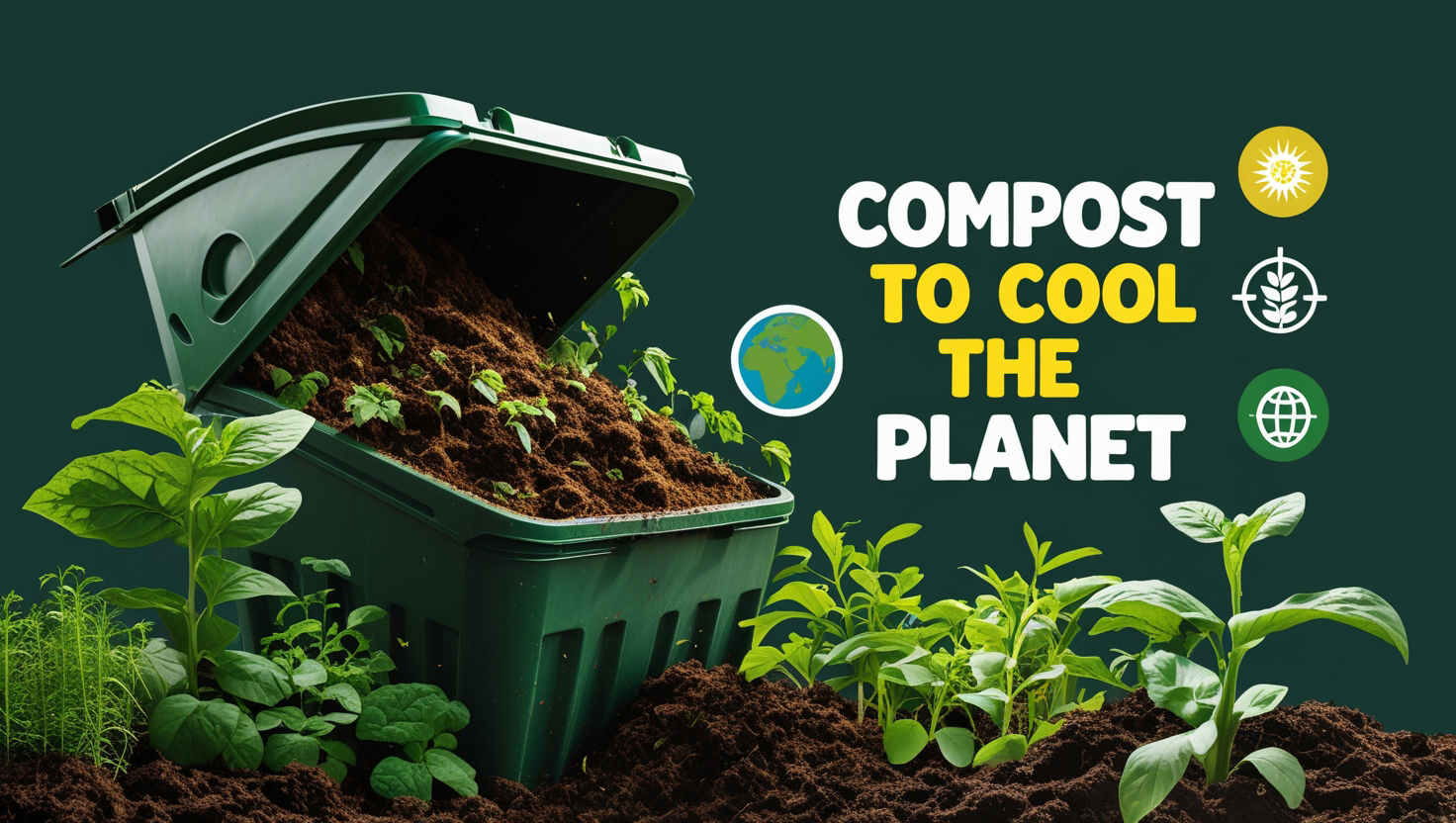
🌱 What is Composting?
Composting is the biological process of recycling organic materials — such as vegetable scraps, dry leaves, coffee grounds, and garden clippings — into a rich, dark, soil-like substance called compost. This process occurs naturally with the help of microorganisms, fungi, worms, and bacteria, breaking down materials over time to enrich soil with essential nutrients.
🌍 Why It Matters for Climate
In Pakistan, where over 65% of municipal solid waste is biodegradable, composting can reduce the burden on landfills and help slash methane emissions — a greenhouse gas 84 times more potent than CO₂ over 20 years. According to the U.S. EPA, composting just one ton of food waste can prevent more than half a ton of CO₂ emissions.
🌾 Benefits for Soil & Farming
- Soil Fertility: Compost returns organic matter and nutrients back into the soil, promoting healthy plant growth.
- Water Retention: Improved soil structure enhances moisture absorption, crucial for drought-prone regions like Thar and Balochistan.
- Reduced Fertilizer Dependency: Compost reduces the need for synthetic inputs, cutting costs and chemical runoff into rivers and groundwater.
- Soil Carbon Storage: Compost increases organic carbon content, a key component in climate mitigation per the 4p1000 global initiative.
🏔 Composting in Mountain Regions
In places like Hunza and Skardu, where transportation and fertilizer costs are high, composting has been rediscovered as a low-cost, local solution. Families use pit composting and even vermicomposting with earthworms. When integrated into terraced farming systems, compost reduces erosion and stabilizes land prone to landslides and flash floods.
🧺 What You Can and Cannot Compost
- ✅ Vegetable and fruit scraps
- ✅ Tea leaves and eggshells
- ✅ Grass clippings and dry leaves
- ❌ Plastics and synthetic materials
- ❌ Dairy, meat, or oily foods (in basic compost setups)
📋 Policy & NDC Integration
Pakistan’s updated Nationally Determined Contributions (NDC) mentions reducing emissions from energy and forestry, but composting is largely absent. Including it can help Pakistan meet targets for waste management, food security, and GHG reduction. Provincial action plans in KP and Punjab can adopt community composting hubs to engage youth, especially women, in green entrepreneurship.
📊 Case Studies
In Lahore, urban composting projects by the private sector and NGOs have helped convert daily market waste into fertilizer for peri-urban farms. Meanwhile, in Chitral, pilot vermicompost centers have empowered local women to generate income while enhancing soil productivity — proving that composting has both economic and ecological value.
🌿 Want to join the composting revolution?
Follow us to start your own compost bin, partner with our training hubs, or fund a rural compost pilot today.
🌍 Join Us